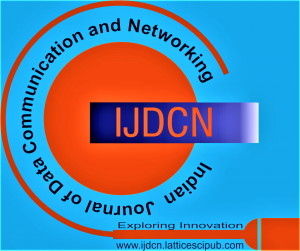Facebook Addiction among Afghan University Students: A Structural Equation Modelling
Hassan Rahnaward Ghulami1, Abdul Samad Roesh2, Mohammad Reza Ibrahim3, Mohammad Akbari4, Hossein Mohammadi5
1Hassan Rahnaward Ghulami, Mathematics Department, Faculty of Natural Science, Bamyan University, Bamyan, Afghanistan.
2Abdul Sammad Roesh, Physics Department, Faculty of Natural Science, Bamyan University, Bamyan, Afghanistan.
3Mohammad Reza Ibrahim, Sociology Department, Faculty of Social Science, Bamyan University, Bamyan, Afghanistan.
4Mohammad Akbari, Mathematics Department, Faculty of Natural Science, Bamyan University, Bamyan, Afghanistan.
5Dr. Hossein Mohammadi, Agronomy Department, Faculty of Agriculture, Bamyan University, Bamyan, Afghanistan.
Manuscript received on 15 March 2021 | Revised Manuscript received on 22 March 2021 | Manuscript Accepted on 15 April 2021 | Manuscript published on 30 April 2021 | PP: 1-9 | Volume-1 Issue-2, April 2021 | Retrieval Number: 100.1/ijdcn.B5001021221 | DOI: 10.54105/ijdcn.B5001.041221
Open Access | Ethics and Policies | Cite | Mendeley | Indexing and Abstracting
© The Authors. Published by Lattice Science Publication (LSP). This is an open access article under the CC-BY-NC-ND license (http://creativecommons.org/licenses/by-nc-nd/4.0/)
Abstract: The current research intends to evaluate the validity and reliability of the adopted model-BFAS, and investigate relationship between the motives and Facebook addiction in Afghanistan. The adopted instrument were online distributed to undergraduate and postgraduate students and only 431 responded across the country to determine their intentions for using Facebook. The software of RStudio used for descriptive analysis and SEM-PLS approach was applied to hypothesis the relationship between the constructs. Results showed that the BFAS measures intensity of Facebook addiction, although measurement model was reliable and structural model has discriminate validity. Further, the results show that students use Facebook for communication, social interaction and entertainment, and these motives positively predicted Facebook addiction. Based on the results, authors believe that the Facebook addiction is a phenomenon that exists across the countries, and greater use of Facebook would tend to create problem of addiction. In sum up, this research would help parents, serves provider, policy makers, current Facebook users, and students to control their excessive use of Facebook.
Keywords: Facebook; Addiction; SEM; Motives.
Scope of the Article: Social Networks
